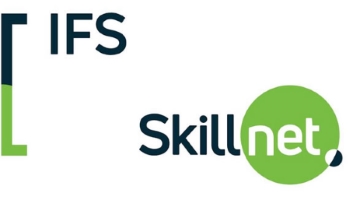Start Dates: TBC
Duration: 1 full & 4 half days Live Online
Location: Online
Full Fee: POA
Network Members Fee: POA
Programme overview
This course will only be run as a face to face in class event when it is confirmed safe to do so. Expleo Academy’s BCS Certificate in Modelling Business Processes provides attendees with the knowledge and tools to identify, model, and
improve Business Processes. This course is delivered by BCS-accredited trainers with practical experience of business process modelling and analysis. Attendees will learn industry standard notation, techniques for modelling and measuring processes, and for identifying process improvement. The collaborative training approach includes group activities, case study analysis and
Learning outcomes
On completion of the Modelling Business Processes
course, attendees will be able to:
• Understand the role of business process modelling in describing an organisation’s internal processes, and why this is a key BA skill in supporting change
• Understand the hierarchy of process models and techiques to describe them
• Model core business processes at an organisation level
• Model business processes at the process level
• Document and analyse tasks within a business process
• Use gap analysis to improve business processes
Who is the course for?
The Practitioner certificate is relevant to anyone requiring an understanding of Business Process Modelling, including Business Analysts, Business
Managers and their staff, and Business Change Managers.
The course is also aimed at individuals who wish to become accredited in the internationally recognised BCS Certificate in Modelling Business Processes, on their path to achieving the BCS International Diploma in Business Analysis.
Course Content:
The Context For Business Process Modelling
• The purpose and benefits of business process modelling
• The three-level business process hierarchy
• The importance of the process view versus the functional view of an organisation
• Using the POPIT model for impact analysis of new process design
• Approaches to implementing business change
The Organisational Context For Business Processes
• Construction of an organisational level model of a business process for a given business scenario
• Distinguish between external and internal elements of an organisational model
• How business processes on an organisational model support delivery of the value proposition
Modelling The Business Processes
• Construct a Business Process Model for a given business scenario using Actors, Swim Lanes, Tasks, Decision Points, Guard Conditions, Start
Points, End Points, Process Flows, Joins and Forks.
• The importance of a standard notation set
• The relationship between Process, Task, and Step
• Using OPOPOT and representing Tasks
• Identifying external, internal, and time-based business events
• Internal Performance Measure and Customer
expectations of performance
Documenting Tasks
• Constructing a Task description for a given business scenario
• Documenting a Task using UML activity diagram notation, or structured English
• Documenting a Task using structured English
Improving Business Processes
• Different approaches to improving Business Processes, including task automation and process re-engineering
• Challenging business rules and assumptions
• Performance issues in Business Processes
• Challenging the business rules
• Using business scenarios to identify combinations of conditions to be supported
• Identifying Functional Requirements for IT System support of a Business Process
• Using Gap Analysis on a “To Be” Business Process model


